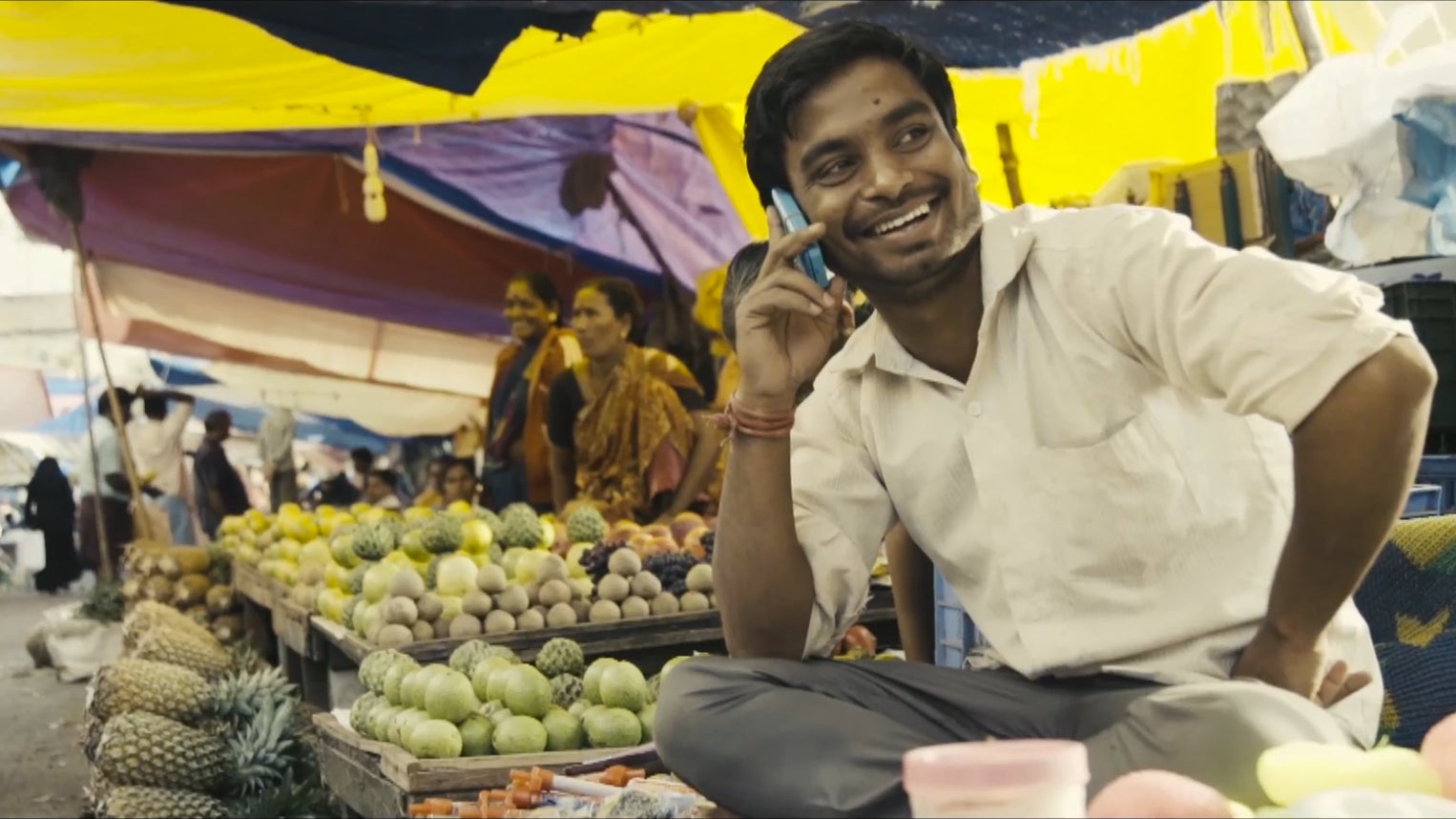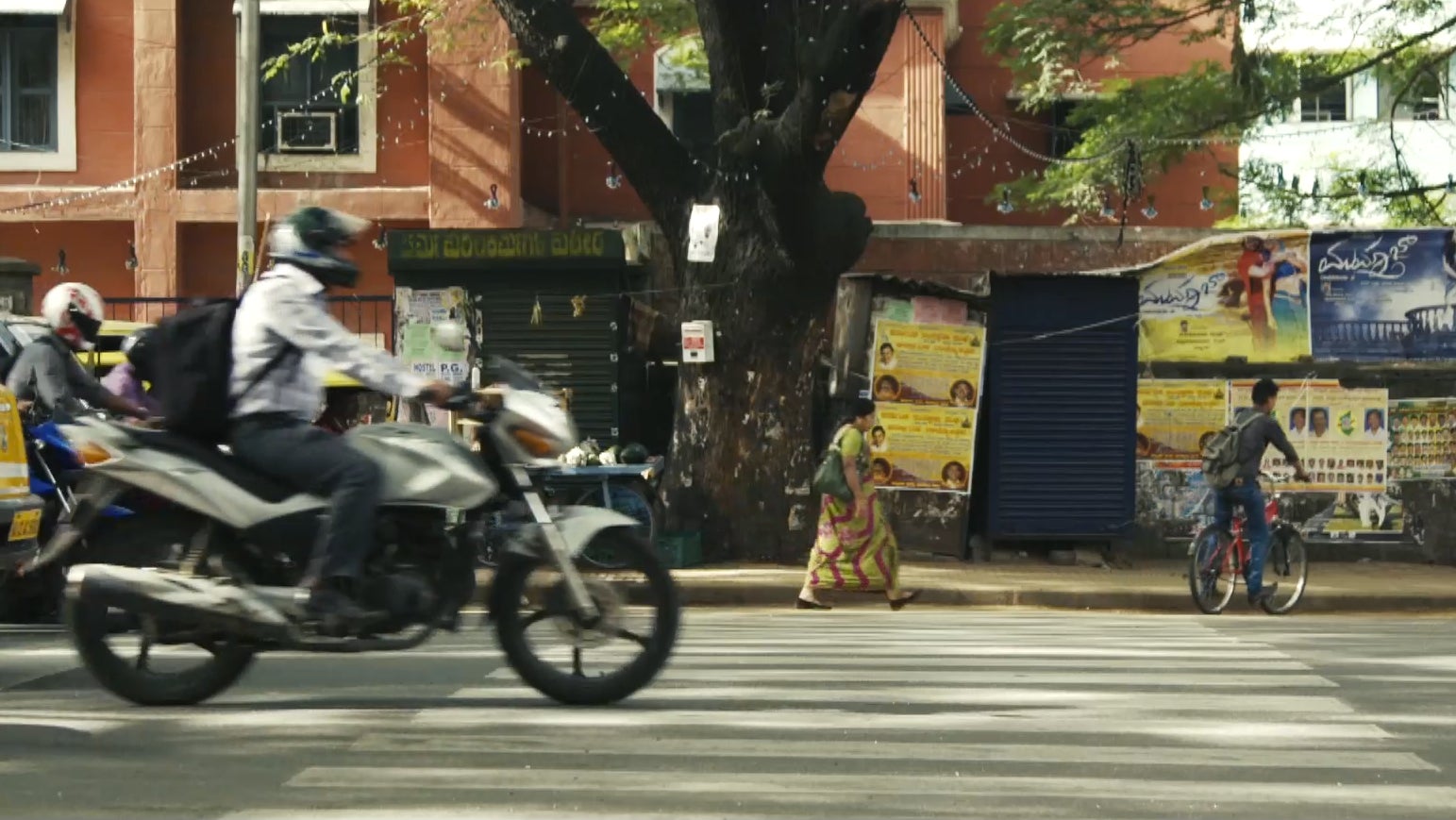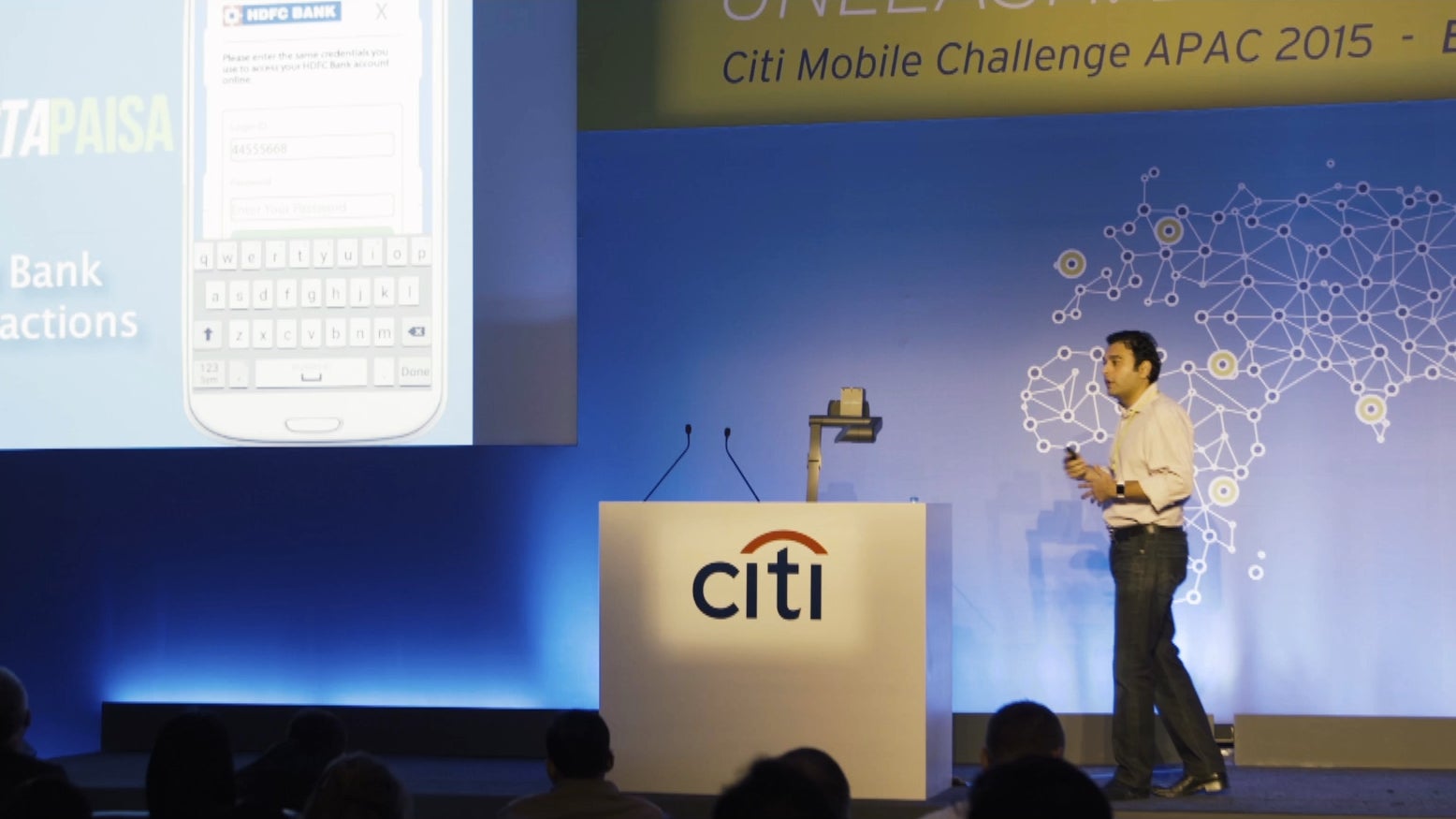Bengaluru is leapfrogging brick-and-mortar banking
The sidewalks fill quickly, the buses quicker still. A thick mass of cars and mopeds surge forward when the traffic lights turn. Bengaluru is, unmistakably, a city on the go. For a fast-growing slice of society here and throughout India, a mobile phone is now a must—it’s an engine of opportunity that comes in travel size.


SPONSOR CONTENT BY CITI
The sidewalks fill quickly, the buses quicker still. A thick mass of cars and mopeds surge forward when the traffic lights turn. Bengaluru is, unmistakably, a city on the go. For a fast-growing slice of society here and throughout India, a mobile phone is now a must—it’s an engine of opportunity that comes in travel size.
A rising generation of entrepreneurs is harnessing that little engine to better people’s lives in India, soon to become the most populous country on the planet. Bengaluru has become, particularly in the last decade, a tech hub to be reckoned with on the global stage. And many of the top players in the city’s flourishing startup community are devoting themselves to financial technology, or FinTech, especially on handheld devices. By turning the ubiquitous mobile phone into the center of Indians’ financial lives, these innovators are empowering people on the move to reach their destinations. Citi, the leading global bank, is helping these entrepreneurs make it happen.

The Citi Mobile Challenge, inaugurated in 2014, is a spirited competition dedicated to inspiring mobile developers worldwide to reimagine banking for the way we live now. When the event came to the Asia Pacific region last year and made a stop in November in Bengaluru, it drew unprecedented interest and participation. More than 1,300 Indian startups registered, outdoing the rest of Asia combined. This might seem surprising given that in India, a developing country where 95 percent of transactions are still in cash, hundreds of millions of citizens have never seen the inside of a bank. But Citi has been quick to grasp that many customers might well prefer to keep it that way as their buying power grows—they are leapfrogging over brick-and-mortar into the digital and mobile age.

The Citi Mobile Challenge brings together thinkers who share this vision of a world where banking taps into technology to meet consumers where they live. The ethos behind the competition is not to declare winners and losers in the manner of reality TV, but instead to steer FinTech innovation toward fruitful paths and accelerate promising solutions to bring them to market. Being named a finalist or taking home an award is not an endpoint but a boost forward; the most significant days are the ones to come. Success at the Citi Mobile Challenge brings recognition and it can lead to commercial relationships with Citi and an array of major event sponsors.
A select group of participants were invited to showcase their ideas at four Demo Days, held in Bengaluru, Hong Kong, Singapore, and Sydney. At the Bengaluru event, entrepreneurs of all stripes took the stage, hearts pounding, before a crowded room to make their pitches. They wore headsets, gestured broadly, and paced from side to side, eager to share their thinking and enthusiasm. Fresh faces abounded in the audience as well as on stage. In India, 73 percent of startup founders are under 36 years old.
An important theme came through in the demonstrations: the entrepreneurs who were generating excitement and catching Citi’s eye in Bengaluru were using mobile tech to bring into the fold the large swaths of society that have little exposure to the banking system. In India, credit cards are a rarity and applying for personal loans can be cumbersome and forbidding. A startup called InstaPaisa matches consumers who may be first-time borrowers to appropriate and willing lenders, all within minutes. InstaPaisa was named one of four Indian winners in the Citi Mobile Challenge.
Other participants at the Bengaluru Demo Day are finding clever ways to turn the basic, affordable “feature phones” that are popular in the developing world into powerful financial tools. A nonprofit called FEDA, for instance, has developed a platform that enables farmers who live far from any bank to conduct e-commerce through a voice-based interactive system, resulting in better prices. In a nation where ATMs can be many miles away, entrepreneurs are recognizing that mobile payments are a promising area. A startup called ToneTag allows for phones that don’t have the expensive Near Field Communication capability to nonetheless make mobile payments—the device generates a tone, and the sound waves seal the deal.

India hosts about a sixth of the world’s population and has more than its share of economic challenges. Compared to the wealthiest nations, digital adoption is in its infancy; less than 40 percent of Indians have internet access, and smartphones are not widespread. But to the entrepreneurs that Citi brought together in Bengaluru, that only points up the promise that lies ahead. More than a billion people are on the way up and looking for the tools that will help them realize their ambitions.
This article was produced on behalf of Citi by the Quartz marketing team and not by the Quartz editorial staff.